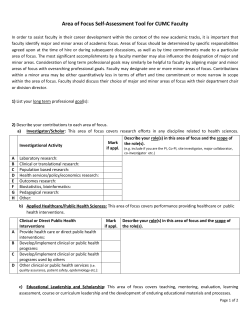
Kyle Webber
Stress-dependent electromechanical properties in lead-free ferroelectrics Kyle G. Webber* and Florian H. Schader Materials Science Department, Technische Universität Darmstadt, Alarich‐Weiss‐Straße 2, Darmstadt, Germany, 64287 * e-mail: webber@ceramics.tu-darmstadt.de Over the past decade there has been an increasing interest in locating a lead-free ferroelectric material to replace current lead-containing compositions in piezoelectric applications. Although numerous candidates have been identified, lead-free ferroelectrics based on (Bi1/2Na1/2)TiO3 (BNT) have shown some of the largest observed electromechanical properties, in particular near the morphotropic phase boundary when combined with tetragonal BaTiO3 (BNT-xBT). In applications, however, large electrical, mechanical, and thermal fields are often applied and understanding of the electromechanical response is required. In this work, the high temperature mechanical behavior (25 – 400 °C) of various compositions of BNT-BT is presented.1,2 During characterization, stress-induced phase transitions were observed, analogous to the wellknown electrical double-loop behavior found in pure BaTiO3.2,3 In-situ stress- and electric-field-dependent synchrotron measurements were performed and are contrasted to macroscopic observations.4,5 The results are discussed in terms of the influence of local disorder on the A-site and changing crystal structure. Additional measurements are performed using a custom-built experimental arrangement capable of measuring the temperature- and stress-dependent piezoelectric and dielectric response. Here, clear influence of the external stress on several defining parameters, such as depolarization temperature and frequency dispersion, give an indication of the changing relaxor state. These measurements are utilized to construct a stress-dependent phase diagram of BNT-BT. 1. High Temperature Stress-Induced "Double Loop-Like" Phase Transitions in Bi-based Perovskites, Webber KG, Zhang Y, Jo W, Daniels JE and Rödel J, J Appl Phys, 108, 014101 (2010) 2. Critical mechanical and electrical transition behavior of BaTiO3: The observation of mechanical double loop behavior, Picht G, Webber KG, Zhang Y, Kungl H, Damjanovic D and Hoffmann MJ, J Appl Phys, 112, 124101 (2012) 3. Double hysteresis loop of BaTiO3 at the curie point, Merz WJ, Phys Rev, 91, 513-517 (1953) 4. Mechanical double loop behavior in BaTiO3: Stress induced paraelastic-to-ferroelastic phase transformations, Daniels JE, Picht G, Kimber S and Webber KG, Appl Phys Lett, 103, 122902 (2013) 5. Electric-field-induced paraelectric to ferroelectric phase transformation in prototypical polycrystalline BaTiO3, Wang Z, Webber KG, Hudspeth JM, Hinterstein M and Daniels JE, Appl Phys Lett, 105, 161903 (2014) Kyle Grant Webber RESEARCH Assistant Professor FG Electromechanics of Oxides (EO) FB Materialwissenschaft Technische Universität Darmstadt, Germany 2014 – Present 2010 – 2014 Mechanical Properties of Ferroelectrics Group Leader FG Nichtmetallisch-‐Anorganische Werkstoffe (NAW) FB Materialwissenschaft Technische Universität Darmstadt, Germany 2008 – 2010 Postdoctoral Researcher FG Nichtmetallisch-‐Anorganische Werkstoffe (NAW) FB Materialwissenschaft Technische Universität Darmstadt, Germany EDUCATION 2005 – 2008 2003 – 2005 Doctor of Philosophy George W. Woodruff School of Mechanical Engineering Georgia Institute of Technology, Atlanta, Georgia USA Master of Science George W. Woodruff School of Mechanical Engineering Georgia Institute of Technology, Atlanta, Georgia USA 1998 – 2003 Bachelor of Science, Marine Systems Engineering Maine Maritime Academy, Castine, Maine USA • U.S. Coast Guard Third Assistant Engineer’s License SELECTED PUBLICATIONS 1. J Rödel, KG Webber, R Dittmer, W Jo, M Kimura, and D Damjanovic, “Feature Article – Transferring lead-‐free piezoelectric ceramics into application”, J Euro Ceram Soc , 35(6), 1659–1681 (2015) 2. C Groh, DJ Franzbach, W Jo, KG Webber, T Granzow, J Kling, LA Schmitt, H-‐J Kleebe, S-‐J Jeong, J-‐S Lee, and J Rödel, “Relaxor/ferroelectric composites: A solution in the quest for practically viable lead-‐free incipient piezoceramics”, Adv Func Mater, 24(3), 356–362 (2014) 3. JE Daniels, G Picht, S Kimber, and KG Webber, “Mechanical double loop behavior in BaTiO3: Stress induced paraelastic-‐to-‐ferroelastic phase transformations”, Appl Phys Lett, 103(12), 122902 (2013) 4. F Schader, E Aulbach, KG Webber, and GA Rossetti, “Influence of uniaxial stress on the ferroelectric-‐ to-‐paraelectric phase change in barium titanate”, J Appl Phys, 113(17), 174103 (2013) 5. 6. 7. Y-‐H Seo, DJ Franzbach, J Koruza, A Benčan, B Malič, M Kosec, JL Jones, and KG Webber, “Nonlinear stress-‐strain behavior and stress-‐induced phase transitions in soft Pb(Zr1-‐xTix)O3 at the morphotropic phase boundary”, Phys Rev B, 87(9), 094116 (2013) EKH Salje, MA Carpenter, GF Nataf, G Picht, K Webber, J Weerasinghe, S Lisenkov, and L Bellaiche, “Elastic excitations in BaTiO3 single crystals and ceramics: Mobile domain boundaries and polar nanoregions observed by resonant ultrasonic spectroscopy”, Phys Rev B, 87(1), 014106 (2013) G Picht, KG Webber, Y Zhang, H Kungl, D Damjanovič, and MJ Hoffmann, “Critical mechanical and electrical transition behavior of BaTiO3: The observation of mechanical double loop behavior”, J Appl Phys, 112(12), 124101 (2012) 8. KG Webber, Y Zhang, W Jo, JE Daniels, and J Rödel, “High Temperature stress-‐induced "double loop-‐ like" phase transitions in Bi-‐based perovskites”, J Appl Phys, 108(1), 014101 (2010) 9. A Schilling, D Byrne, G Catalan, KG Webber, YA Genenko, GS Wu, JF Scott, and JM Gregg, “Domains in ferroelectric nanodots”, Nano Lett, 9(9), 3359-‐3364 (2009) 10. KG Webber, E Aulbach, T Key, M Marsilius, T Granzow, and J Rödel, “Temperature-‐dependent ferroelastic switching of soft lead zirconate titanate”, Acta Mater, 57(15), 4614-‐4623 (2009) Kyle Grant Webber * webber@ceramics.tu-‐darmstadt.de 1/1
© Copyright 2025











